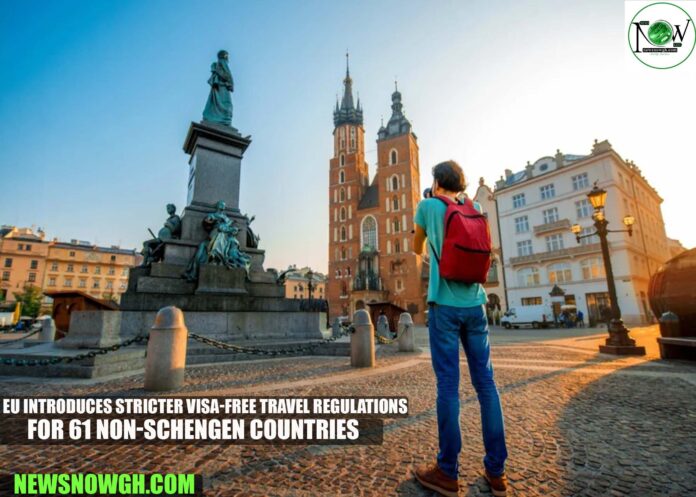EU Introduces Stricter Visa-Free Travel Regulations for 61 Non-Schengen Countries
The European Parliament has taken a significant step by approving new reforms that enhance the EU’s ability to regulate visa-free access for certain countries. This change aims to strengthen security measures and ensure that visa privileges are linked to responsible governance. By holding governments accountable, the EU is making it clear that visa-free travel is a privilege, not a right.
Key Changes in Visa-Free Access
Currently, citizens from 61 countries can enter the Schengen Area without a visa for short stays of up to 90 days. However, this privilege may be suspended more swiftly and for a broader range of reasons under the new regulations. Previously, the EU could only act if citizens overstayed their visas, committed serious crimes, or posed clear security threats.
New Grounds for Suspension
The updated regulations introduce several new reasons for potentially suspending visa-free status, including:
- Hybrid Threats: Using migration as a tool for political leverage.
- Security Risks: Concerns arising from “golden passport” schemes that sell citizenship.
- Human Rights Violations: Breaches of human rights or humanitarian laws.
- Non-compliance: Failure to adhere to international court rulings.
- Visa Policy Alignment: Inability to align with EU visa policies.
In essence, if a country fails to uphold agreed standards, the EU can now revoke or freeze its visa-free access.
Accountability for Governments and Officials
A notable aspect of this reform is the focus on personal accountability. The EU can now target specific officials involved in human rights abuses or violations rather than punishing entire populations. Clear benchmarks have also been set:
- Visa Overstays: A 30% increase in overstays or serious offenses may prompt a review.
- Asylum Claims: A 20% recognition rate for asylum claims could indicate potential misuse of visa-free access.
The European Commission retains the discretion to make exceptions if warranted by specific situations.
Implications for Travelers
For travelers holding passports from visa-free countries, immediate changes are not anticipated. However, there is a risk that their countries could lose this status if political or security issues escalate. For EU travelers and member states, these reforms aim to enhance border security while fostering fair international relationships.
The regulations serve as a reminder that visa-free travel is based on trust and shared values, not an entitlement.
Next Steps in the Process
The reform passed with significant support: 518 votes in favor, 96 against, and 24 abstentions. However, it still requires final approval from the EU Council before taking effect. Once approved, the changes will be published in the EU’s Official Journal, taking effect 20 days later.
The European Commission will have the authority to suspend visa-free entry while investigations are conducted temporarily. If issues persist, the suspension could become permanent.
To date, the EU has only revoked visa-free access once, against Vanuatu, due to concerns over its citizenship-by-investment program.
Conclusion
This reform represents a careful balance. The EU aims to remain open to the world while ensuring security and upholding human rights. By updating its visa suspension system, the EU reinforces a vital message: access to Europe carries responsibilities.
Follow NewsNowGh to stay updated on the latest information regarding work permits, visas, and visa-sponsored employment.


